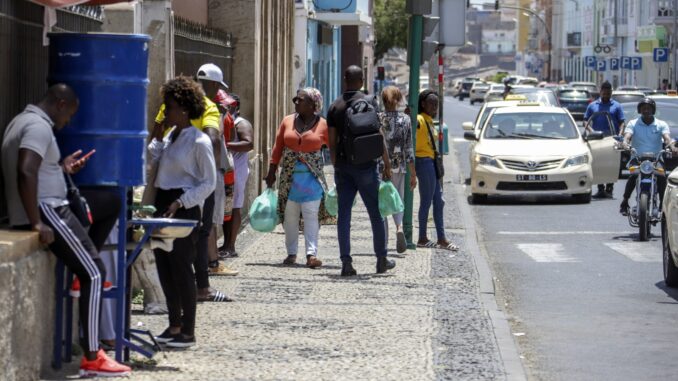
The Cape Verdean economy grew by 6.9% in 2019, above the initial estimate of 5.7%, according to the final national accounts report for that year, released Tuesday by the National Statistics Institute (INE).
According to the report, Cape Verde’s Gross Domestic Product (GDP) registered an increase of 6.9% in 2019, compared to the previous year, which in turn was 3.2 percentage points lower.
This evolution, according to INE, resulted from increases in final consumption expenditure (+6.6%) and exports (+9.2%). It adds that investment recorded a negative change of 3.7%, in volume, in 2019 (+4.0% in the previous year), exports increased by 9.2% and imports by 3.3%.
In the provisional accounts released in 2020, INE had projected that Cape Verde recorded 5.7% GDP growth in 2019. Thus, according to the report, GDP (all wealth produced) in Cape Verde increased from 205,986 million escudos (1,866 million euros) in 2018 to 221,829 million escudos (2,009 million euros) in 2019.
According to INE history, the Cape Verdean economy grew by 3.7% in 2018, 4.6% in 2017 and 4.3 in 2016, in addition to 6.9% in 2019. Cape Verde is recovering from a deep economic and financial crisis, stemming from the sharp drop in tourism demand – a sector that guarantees 25% of the archipelago’s GDP – since March 2020, due to the covid-19 pandemic. In 2020, it recorded a historic economic recession, equivalent to 14.8% of GDP, followed by growth of 7% in 2021 and 17.7% in 2022, driven by the recovery of tourism demand.
“The economy will continue to grow in 2023. We have a forecast that is conservative of 4.8%, but it will continue to grow and create jobs,” said the Prime Minister, Ulisses Correia e Silva, in a message to the country on Monday, regarding the two years in office of the VIII Constitutional Government of the second Republic.
